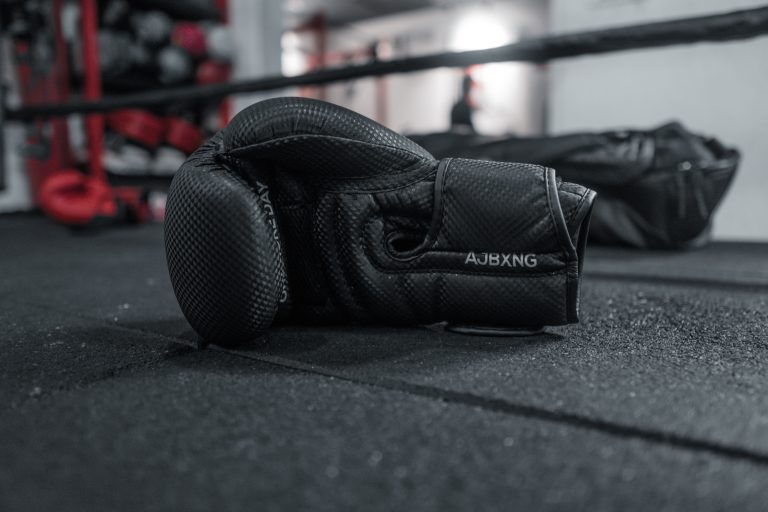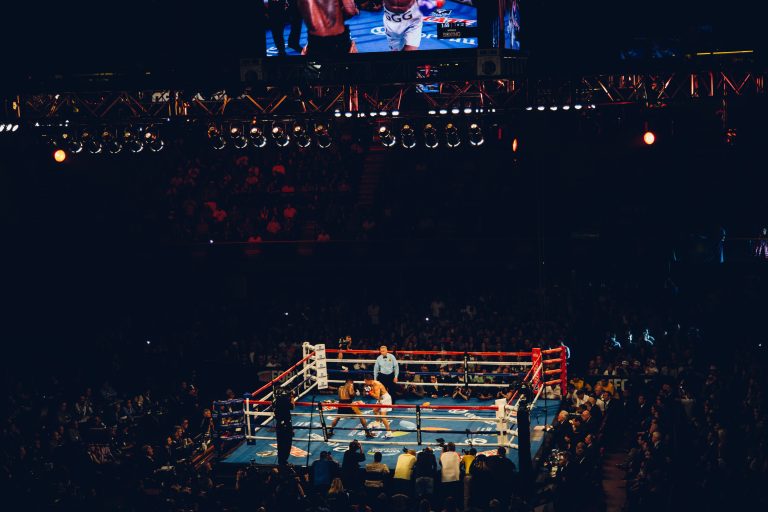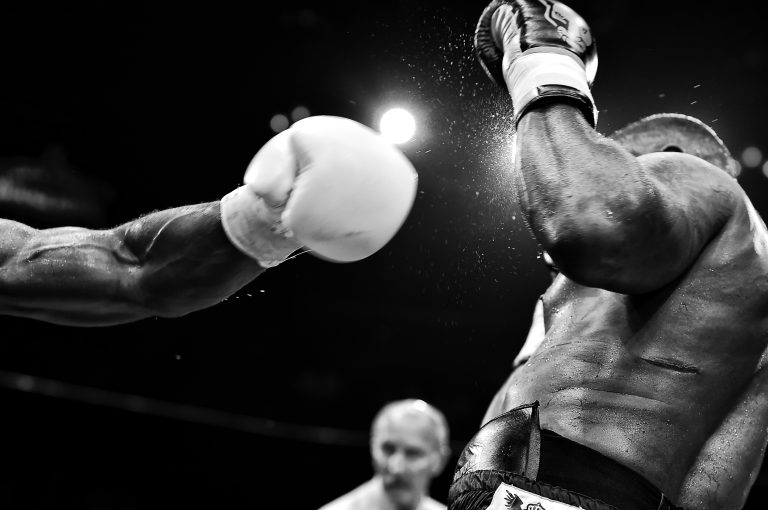ITKF-Regeln für traditionelle Karate-Wettkämpfe
Traditionelles Karate ist eine Sportart, die auf Disziplin, Technik und Respekt vor den Gegnern und den Regeln des Sports basiert. Die International Traditional Karate Federation (ITKF) ist eine Organisation, die sich der Förderung des traditionellen Karates widmet und nationale und internationale Karate-Wettkämpfe organisiert. Allerdings gibt es spezifische Regeln, die für die ITKF-Veranstaltungen gelten und die Wettkämpfe fair und sicher halten. Im folgenden Text werden die wichtigsten ITKF-Regeln für traditionelle Karate-Wettkämpfe erläutert.
Zeitlimit
Das Zeitlimit für traditionelle Karate-Wettkämpfe beträgt in der Regel drei Minuten, jedoch kann es je nach Veranstaltung variieren. Bei einem Unentschieden kann eine Verlängerung von einer zusätzlichen Minute eingesetzt werden. Das Ziel des Wettkampfes ist es, entweder durch K.O., Disqualifikation des Gegners, Aufgabe des Gegners oder durch ein höheres Punkteergebnis zu gewinnen.
Punktebewertung
Die Punktebewertung basiert auf der Anzahl der erfolgreichen Treffer und der Qualität der Technik. Es gibt verschiedene Trefferzonen, die für traditionelles Karate-Wettkämpfe gelten. Beispielsweise gibt es die Jodan-Zone (Kopfbereich), Chudan-Zone (Bauchbereich) und Gedan-Zone (Beinbereich). Ein Treffer in der Jodan-Zone hat eine höhere Wertung als ein Treffer in der Chudan- oder Gedan-Zone.
Bewertung der Technik
Die Qualität der Technik wird nach verschiedenen Kriterien bewertet, wie der korrekten Ausführung der Technik, der Kraft, der Geschwindigkeit und der Kontrolle. Es ist wichtig, dass die Technik sicher und ohne Verletzungsgefahr für den Gegner ausgeführt wird. Außerdem sollten unangemessene Bewegungen vermieden werden, wie zum Beispiel Schläge oder Tritte gegen den Kopf oder den Nacken.
Kleidung
Für traditionelle Karate-Wettkämpfe ist eine spezielle Karate-Uniform erforderlich. Die Uniform besteht aus einer Jacke, einer Hose und einem Gürtel. Die Farbe des Gürtels zeigt das Niveau des Karatekas an – je höher das Niveau, desto dunkler die Farbe. Außerdem ist es wichtig, dass die Kleidung sauber und ordentlich ist, um Respekt vor den Regeln und dem sportlichen Geist zu zeigen.
Schiedsrichter und Kampfrichter
Während eines traditionellen Karate-Wettkampfes gibt es einen Schiedsrichter und mehrere Kampfrichter. Der Schiedsrichter kontrolliert den Verlauf des Wettkampfes und ist für die Entscheidung bei Streitfällen und Regelverstößen verantwortlich. Die Kampfrichter bewerten die Technik und geben Punkte ab. Alle Schiedsrichter und Kampfrichter sollten eine offizielle ITKF-Lizenz besitzen und die ITKF-Regeln genau kennen.
Zusammenfassung
Um an einem traditionellen Karate-Wettkampf der ITKF teilzunehmen, muss man die spezifischen Regeln kennen und respektieren. Das Zeitlimit beträgt in der Regel drei Minuten. Bewertet werden die erfolgreichen Treffer und die Qualität der Technik. Die Kleidung sollte ordentlich und sauber sein, und alle Schiedsrichter und Kampfrichter sollten eine offizielle ITKF-Lizenz besitzen. Mit diesen Regeln bleibt das traditionelle Karate ein sportlich fairer Wettkampf, der auf Respekt und Disziplin basiert.
Frequently Asked Questions about ITKF-Regeln für traditionelle Karate-Wettkämpfe
If you’re a fan of traditional Karate and want to participate in competitions, you must have come across ITKF-Regeln. These are the rules and regulations that govern the sport and provide a fair playing field for all competitors. However, as with any sport, there are always questions about rules and regulations that need clarification. In this blog post, we will answer the most frequently asked questions about ITKF-Regeln für traditionelle Karate-Wettkämpfe.
1. What is ITKF and why are their rules important?
ITKF stands for International Traditional Karate Federation. It is a global federation that promotes and regulates traditional Karate competitions around the world. The ITKF regulates the technical and sporting aspects of traditional Karate, including the rules and guidelines that apply to competitions.
2. How do ITKF-Regeln for traditional Karate competitions differ from other rulesets?
The ITKF-Regeln focus on traditional Karate techniques, emphasizing clean and precise movements that reflect the true spirit of the sport. There are strict guidelines for techniques, stances, and movements that competitors must adhere to in order to score points. In addition, the ITKF-Regeln prohibit any techniques or movements that may cause harm to competitors, including strikes to the face or head.
3. How are points awarded in traditional Karate competitions?
Points are awarded based on several factors, including the accuracy and effectiveness of the technique used, the level of control demonstrated by the competitor, and the overall performance of the competitor. The judges review the techniques used by competitors and assign points based on their accuracy and effectiveness. The competitor with the highest number of points at the end of the match is declared the winner.
4. What are the different categories in traditional Karate competitions?
There are several categories in traditional Karate competitions, including kata and kumite. Kata is a solo form where competitors demonstrate a series of specific techniques and movements in a choreographed sequence. Kumite is a sparring category where competitors engage in free-form fighting, scoring points based on their techniques and effectiveness.
5. What equipment is required for traditional Karate competitions?
Competitors are required to wear the traditional Karate uniform, called a gi, which consists of a jacket, pants, and a belt. In addition, protective equipment such as gloves and footgear may be required for kumite competitions. All equipment must meet ITKF standards and regulations.
6. Are there any age restrictions for traditional Karate competitions?
Competitions are open to competitors of all ages, but there may be specific categories for certain age groups. Competitors under the age of 18 may require parental permission to participate in competitions.
7. Can anyone participate in traditional Karate competitions?
Yes, as long as the competitor has received proper training and meets the eligibility requirements for the specific competition. There may be restrictions based on age, experience level, and other factors.
8. What should I do if I have questions about ITKF-Regeln or traditional Karate competitions?
If you have any questions or concerns about ITKF-Regeln or traditional Karate competitions, you should contact your local Karate organization or ITKF representative. They will be able to provide you with the most up-to-date information and answer any questions you may have.
In conclusion, ITKF-Regeln für traditionelle Karate-Wettkämpfe are designed to ensure fairness, safety, and promote the true spirit of traditional Karate. By familiarizing yourself with these rules and regulations, you can participate in competitions with confidence and enjoy the sport to its fullest.
Inhaltsverzeichnis





